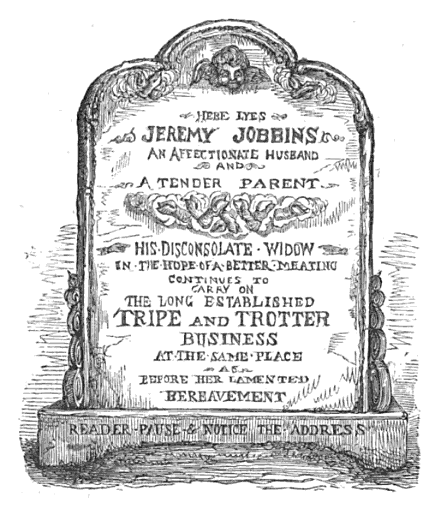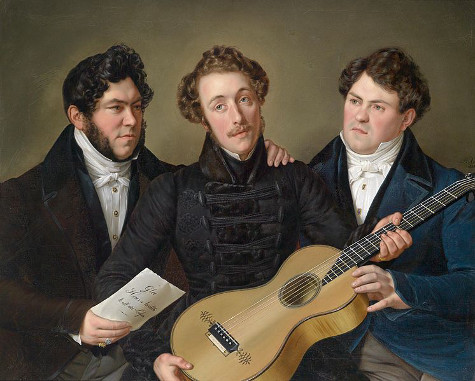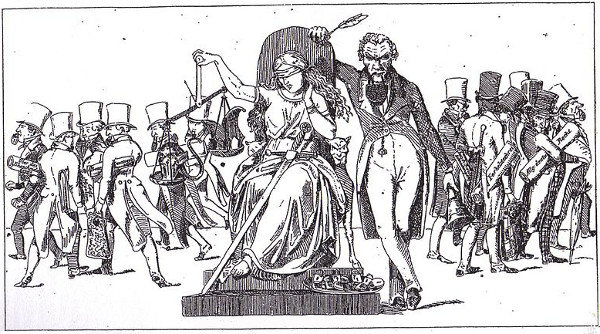Here’s a familiar idea — in 1820 an enterprising Englishman advertised “an establishment where persons of all classes who are anxious to sweeten life by repairing to the altar of Hymen, have an opportunity of meeting with proper partners.” If you were seeking a mate you’d sign up by a paying a fee according to your desirability; the handbill gives these rather blunt examples:
Ladies.
1st Class. I am twenty years of age, heiress to an estate in the county of Essex of the value of 30,000l., well educated, and of domestic habits; of an agreeable, lively disposition, and genteel figure. Religion that of my future husband.
2nd Class. I am thirty years of age, a widow, in the grocery line in London — have children; of middle stature, full made, fair complexion and hair, temper agreeable, worth 3,000l.
3rd Class. I am tall and thin, a little lame in the hip, of a lively disposition, conversible, twenty years of age, live with my father, who, if I marry with his consent, will give me 1,000l.
4th Class. I am twenty years of age; mild disposition and manners; allowed to be personable.
5th Class. I am sixty years of age; income limited; active, and rather agreeable.
Gentlemen.
1st Class. A young gentleman with dark eyes and hair; stout made; well educated; have an estate of 500l. per annum in the county of Kent; besides 10,000l. in three per cent. consolidated annuities; am of an affable disposition, and very affectionate.
2nd Class. I am forty years of age, tall and slender, fair complexion and hair, well tempered and of sober habits, have a situation in the Excise, of 300l. per annum, and a small estate in Wales of the annual value of 150l.
3rd Class. A tradesman in the city of Bristol, in a ready-money business, turning 150l. per week at a profit of 10 per cent., pretty well tempered, lively, and fond of home.
4th Class. I am fifty-eight years of age; a widower, without encumbrance; retired from business upon a small income ; healthy constitution; and of domestic habits.
5th Class. I am twenty-five years of age; a mechanic of sober habits; industrious, and of respectable connections.
“The subscribers are to be furnished with a list of descriptions, and when one occurs likely to suit, the parties may correspond; and if mutually approved, the interview may be afterwards arranged.”
I can’t tell how well it succeeded. “It is presumed that the public will not find any difficulty in describing themselves; if they should, they will have the assistance of the managers, who will be in attendance at the office, No. 5, Great St. Helens, Bishopsgate Street, on Mondays, Wednesdays, and Fridays, between the hours of eleven and three o’clock. — Please to inquire for Mr. Jameson, up one pair of stairs. All letters to be post paid.”
(From Henry Sampson, A History of Advertising from the Earliest Times, 1875.)




